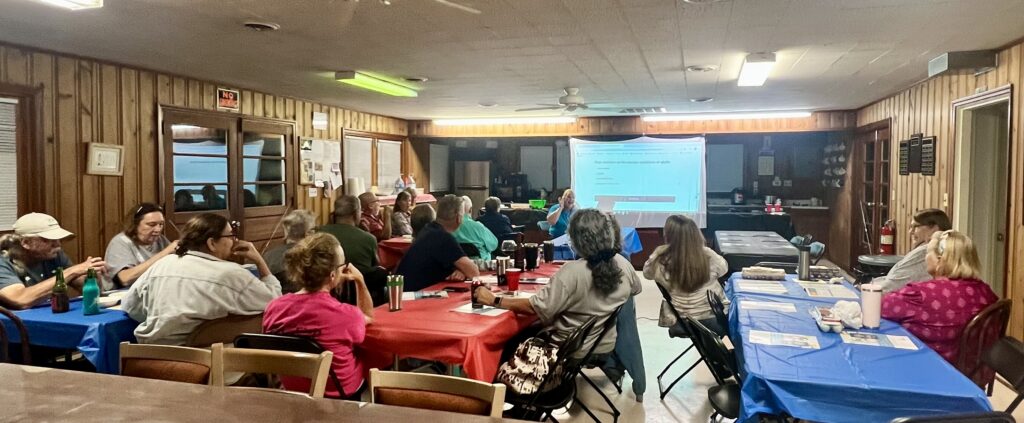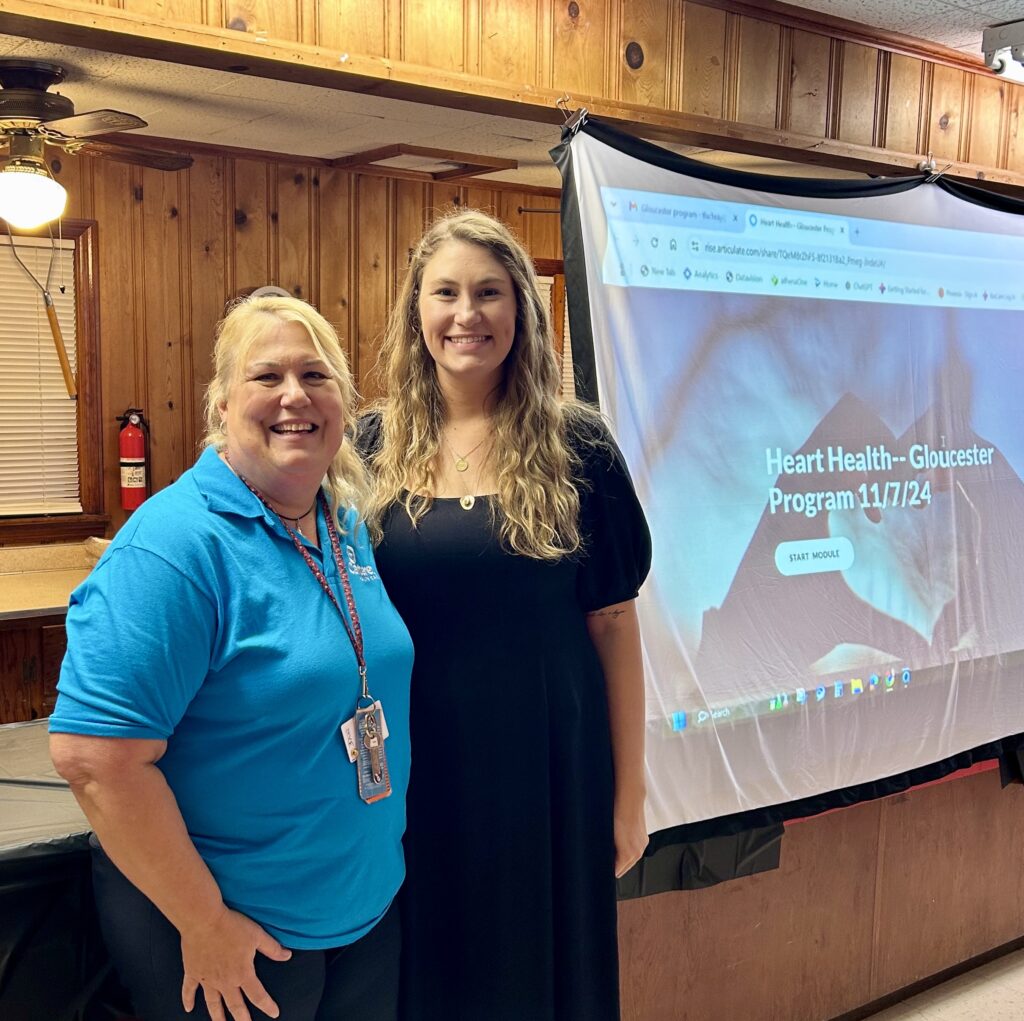Heart Disease in Carteret County: A Down East Community Takes Action
go.ncsu.edu/readext?1041536
en Español / em Português
El inglés es el idioma de control de esta página. En la medida en que haya algún conflicto entre la traducción al inglés y la traducción, el inglés prevalece.
Al hacer clic en el enlace de traducción se activa un servicio de traducción gratuito para convertir la página al español. Al igual que con cualquier traducción por Internet, la conversión no es sensible al contexto y puede que no traduzca el texto en su significado original. NC State Extension no garantiza la exactitud del texto traducido. Por favor, tenga en cuenta que algunas aplicaciones y/o servicios pueden no funcionar como se espera cuando se traducen.
Português
Inglês é o idioma de controle desta página. Na medida que haja algum conflito entre o texto original em Inglês e a tradução, o Inglês prevalece.
Ao clicar no link de tradução, um serviço gratuito de tradução será ativado para converter a página para o Português. Como em qualquer tradução pela internet, a conversão não é sensivel ao contexto e pode não ocorrer a tradução para o significado orginal. O serviço de Extensão da Carolina do Norte (NC State Extension) não garante a exatidão do texto traduzido. Por favor, observe que algumas funções ou serviços podem não funcionar como esperado após a tradução.
English
English is the controlling language of this page. To the extent there is any conflict between the English text and the translation, English controls.
Clicking on the translation link activates a free translation service to convert the page to Spanish. As with any Internet translation, the conversion is not context-sensitive and may not translate the text to its original meaning. NC State Extension does not guarantee the accuracy of the translated text. Please note that some applications and/or services may not function as expected when translated.
Collapse ▲Heart disease continues to be a significant health challenge in Carteret County, claiming the life of one person every three days. This makes it the leading cause of death in our coastal community. According to the Centers for Disease Control and Prevention (CDC), the heart disease death rate in Carteret County is 349 per 100,000 people aged 35 and older—higher than the state average. Adding to this concern, a study by the National Institutes of Health highlights that adults in rural areas face a 19% higher risk of developing heart failure compared to their urban peers, underscoring the unique health challenges faced by residents of our region.

Gloucester Community Center heart health event.
To address this growing issue, N.C. Cooperative Extension and Carteret Health Care joined forces to present “Let’s Talk About a Healthy Heart” at the Gloucester Community Center. This program was specifically designed to provide the Down East community with practical tools and resources for promoting heart health and preventing cardiovascular disease.
The program featured two engaging and knowledgeable speakers. Teresa Schray, BSN, RN, VA-BC, serves as Carteret Health Care’s Community Health and Outreach Coordinator. With over 30 years of nursing experience, Schray provided a comprehensive overview of the heart disease processes most affecting Carteret County residents, including congestive heart failure, heart attacks, and strokes. Her presentation equipped participants with a deeper understanding of cardiovascular health, emphasizing the importance of early detection, proper management, and lifestyle adjustments to mitigate risks.
Complementing this was a hands-on cooking demonstration led by Stephanie Stevenson, M.A., CHES®, Area Agent for Family and Consumer Sciences with N.C. Cooperative Extension. Stevenson guided participants through the preparation of simple, flavorful, and low-sodium meals using ingredients readily available at local grocery stores. By demonstrating how healthy eating can still be delicious and affordable, she empowered attendees to make heart-friendly choices in their everyday lives.

Presenters: Teresa Schray (left) and Stephanie Stevenson (right).
Throughout the event, the 22 attendees were fully engaged, asking thoughtful questions and sharing their own health journeys. The presenters created a welcoming and informative atmosphere, fostering a sense of community and shared purpose. Feedback from participants was overwhelmingly positive, with many praising the speakers for their expertise, clarity, and relatable approach.
The event not only educated attendees but also encouraged dialogue about the importance of proactive health measures. It highlighted how small, consistent changes—such as reducing sodium intake, incorporating more fruits and vegetables into meals, and staying active—can have a significant impact on heart health.
Programs like “Let’s Talk About a Healthy Heart” play a crucial role in addressing rural health disparities. By bringing practical, evidence-based education to communities like Gloucester, these initiatives empower residents to take control of their health and reduce their risk of heart disease.
If your community or organization would like to host a similar program, contact Stephanie Stevenson at Stephanie_Stevenson@ncsu.edu to learn more.




